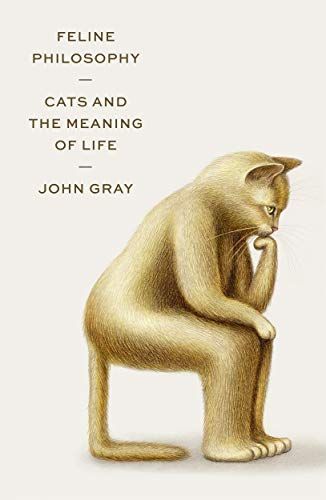
Feline Philosophy Cats and the Meaning of Life
The author of Straw Dogs, famous for his provocative critiques of scientific hubris and the delusions of progress and humanism, turns his attention to cats—and what they reveal about humans' torturous relationship to the world and to themselves. Cats do not need to be instructed in the good life. Obeying their nature, they are content with the life that it gives them. In humans, on the other hand, discontent with our nature seems only natural. The human animal never ceases striving for higher meaning. Cats, however, make no such effort. They are just happy to be themselves. That is why cats have no need for philosophy. They already know how to live. So writes John Gray in this incisive new book about the follies of human exceptionalism and what we can learn from the animals that have long captured our imaginations. The history of philosophy has been a "predictably tragic" succession of palliatives for human disquiet. Thinkers from Spinoza to Berdyaev have pursued the perennial questions of how to be happy, how to be good, and how to be loved—all of which held no relevance to their feline companions. In Feline Philosophy, Gray introduces us to some of these unburdened counterparts, showing how they approached issues of love and attachment, mortality, morality, and the Self: Montaigne's house cat, whose un-examined life may have been the one worth living; Meo, the Vietnam War survivor with an unshakable capacity for "fearless joy"; and Colette's Saha, the feline heroine of her subversive short story "The Cat", a parable about the pitfalls of human jealousy. The nature of cats, and what we can learn from it, is the subject of this book—and through it, Gray delivers a profound, thought-provoking meditation on just how vulnerable it is to be human.
Reviews
Deepika Ramesh@theboookdog
Dora Tominic@dorkele
Dani@erudani
Eva Cace@evaluna
Ned Summers @nedsu
Rob@robcesq
Kit@kit
Duality Diva@dualitydiva
Nicole Leeflang@nlivelong
Alexander Lobov@alexlobov
Casper Oppenhuis de Jong@casperodj